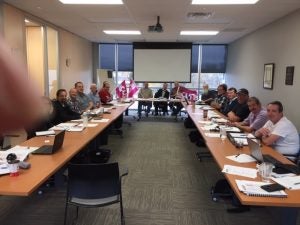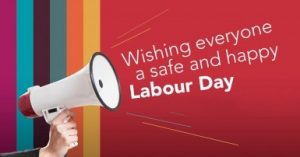
Alejandro Pachon | CUPE Research
Over the last year, the Alberta New Democrat government has introduced numerous reforms to the province’s labour legislation.
The reforms have included changes to the Labour Relations Code; the Employment Standards Code; the Occupational Health and Safety Act; and the Workers Compensation Act. The government has overhauled and modernized the legal framework for labour relations in Alberta, after decades of neglect by previous conservative governments.
Many of these changes directly affect the rights and benefits of workers under provincial jurisdiction. For instance, the Fair and Family-Friendly Workplaces Act (June 7, 2017) made 37 changes and 16 additions to the Employment Standards Code. These include an increase in the minimum wage to $15 per hour, improvements to leave eligibility, parental leave and compassionate care leave, as well as new entitlements to leaves for bereavement, domestic violence, critical illness of a child, and long-term illness and injury.
The same act also made 13 changes and 10 additions to the Labour Relations Code, including classifying all continuing care facilities and healthcare laboratories as essential services requiring essential service agreements to ensure continuous operations during potential strikes.
It’s an impressive list of positive changes, and CUPE locals need to integrate these improvements into their collective agreement. The rapid pace of legislative reform means CUPE locals may find themselves with a lengthy list of items to negotiate at the bargaining table.
To the extent possible, locals should try to include all the new standards as part of their collective agreements, with specific language for each of the improvements obtained through legislation.
Backing up legislation with bargaining improvements also helps defend gains if the government changes. In Alberta, members of the United Conservative Party (UCP) have declared their intention to roll back these gains and even push for “right-to-work” legislation. If the improved standards were to be rolled back, clear and specific language in our collective agreements would protect CUPE members from losing newly acquired entitlements and leaves.
Employers, however, may resist the introduction of this language if they believe that a future Conservative government would remove many of the new employer obligations. If a collective agreement does not contain specific language for domestic violence leave, for example, a change in legislation would leave the employer off the hook and would constitute a loss for the workers.
Even in the face of employer resistance, CUPE locals should make every effort to negotiate new standards into their collective agreements in any jurisdiction where gains are realized.
Find out more about how you can bargain new standards into your contracts. Connect with your CUPE staff representatives to create a plan.





